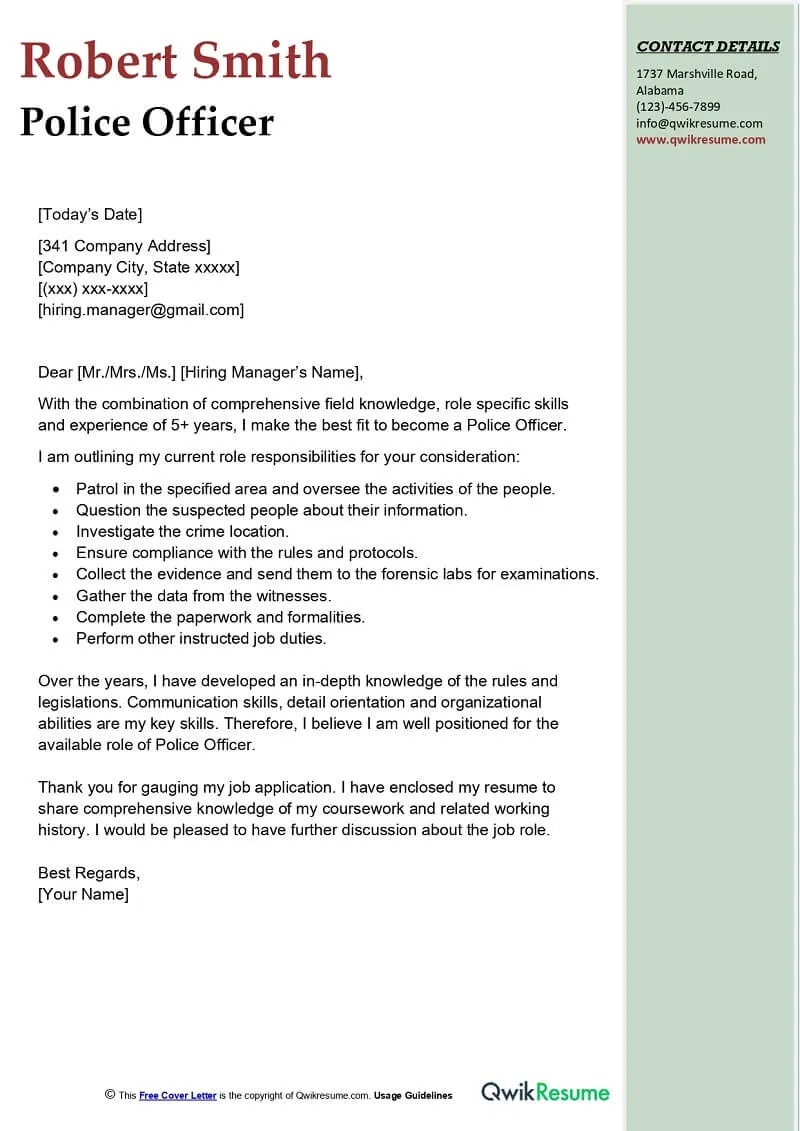Understanding the Police Officer Cover Letter
A police officer cover letter is more than just a formality; it’s your first opportunity to make a strong impression on the hiring manager. It serves as a personal introduction, a showcase of your qualifications, and a way to express your genuine interest in the position. Unlike a resume, which provides a factual overview of your experience, a cover letter allows you to connect with the reader on a more personal level, demonstrating your personality, enthusiasm, and unique suitability for the role. It is a crucial document that can significantly influence whether you get an interview. This guide provides comprehensive police officer cover letter examples and essential tips to help you craft a compelling application.
Why a Strong Cover Letter Matters
In a competitive field like law enforcement, a well-crafted cover letter can set you apart from other applicants. It provides an opportunity to highlight aspects of your experience and skills that might not be immediately apparent from your resume. A strong cover letter demonstrates your attention to detail, your ability to communicate effectively, and your genuine interest in the specific department or agency. It allows you to address any potential concerns, such as gaps in your employment history or a lack of specific experience, and explain how your skills and attributes make you a suitable candidate. The cover letter is a chance to showcase your personality and enthusiasm, qualities that are crucial for success in a police officer role.
Highlighting Your Skills
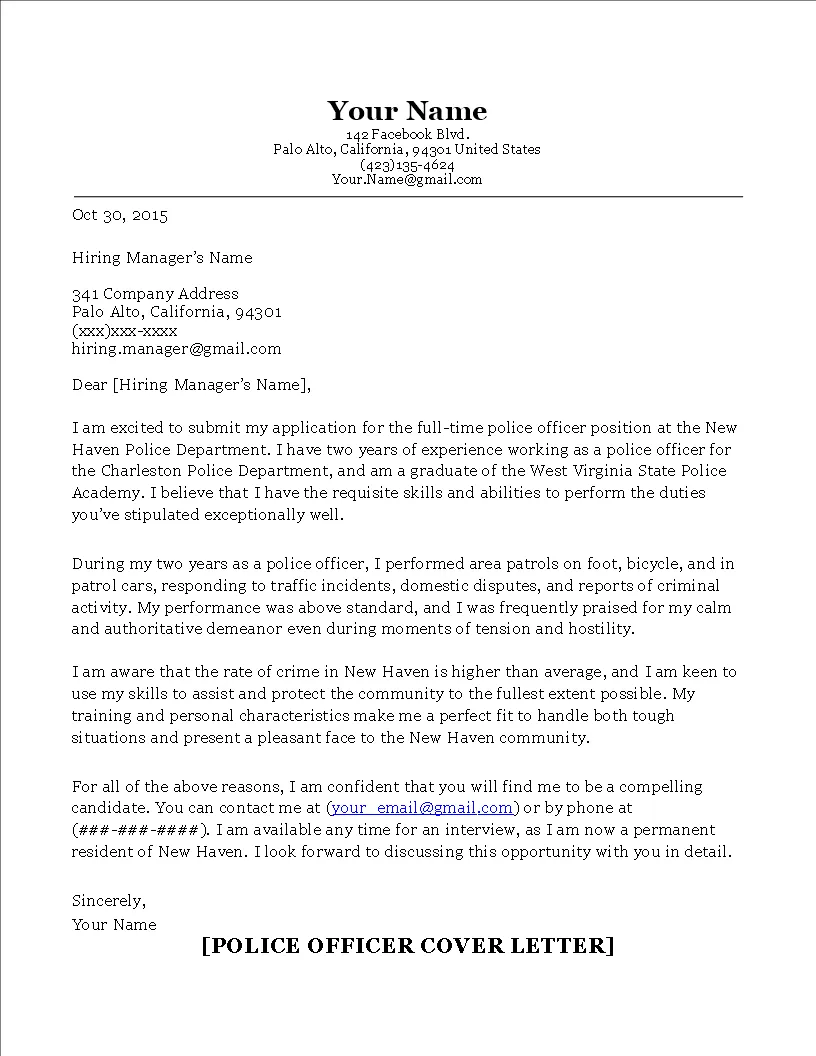
Your cover letter should explicitly mention the essential skills that make you a good candidate. These skills are not just about what you’ve done but also how effectively you can perform the duties of a police officer. The best police officer cover letter examples emphasize the qualities that hiring managers are seeking. Think about qualities like leadership, problem-solving, and communication skills. Also include how you would deal with difficult situations or high-pressure situations.
Essential Skills for Police Officers
Police officers need a diverse set of skills to excel in their roles. These include strong communication skills, both written and verbal, which are essential for writing reports, interacting with the public, and testifying in court. Problem-solving skills are also critical, as officers frequently face complex situations that require quick thinking and effective solutions. Integrity and ethical conduct are paramount, as police officers must maintain the trust of the community. Physical fitness, including stamina and strength, is also necessary. Finally, the ability to work effectively under pressure and maintain composure in stressful situations is another crucial skill.
Demonstrating Relevant Experience
Provide information to support your claims, but it also must be relevant to the position. If you have any prior law enforcement experience, make sure it is front and center and explain what you learned from that experience. Even if your experience isn’t directly in law enforcement, highlight any transferable skills and experiences, like those from military service, security roles, or volunteer work. Explain how these experiences have equipped you with the necessary skills and qualities required to become a successful police officer, such as teamwork, leadership, and the ability to make critical decisions under pressure.
Structuring Your Cover Letter
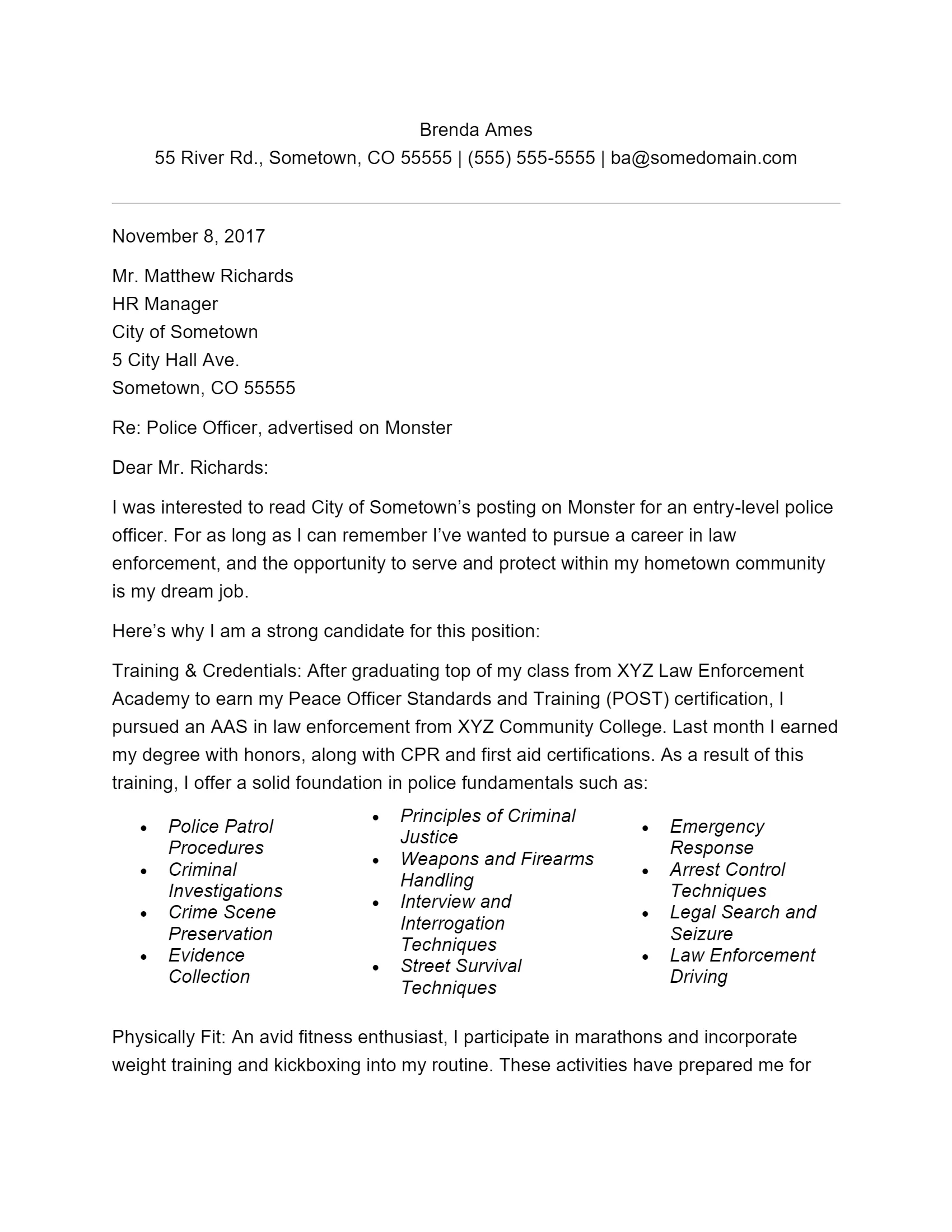
A well-structured cover letter follows a standard format that includes specific elements to provide all the necessary information. The structure should be logical, easy to read, and professional in tone. The best police officer cover letter examples will show the structure, formatting, and style to guide you. Ensure that your formatting is clean, and your tone is professional. This will set the right tone for the hiring manager. Don’t forget to include all of the specific elements that are necessary for a cover letter.
Contact Information and Date
At the top of your cover letter, provide your contact information, including your name, address, phone number, and professional email address. Include the date of the application beneath your contact information, right-aligned. This information allows the hiring manager to quickly identify you and contact you regarding your application.
Addressing the Hiring Manager
Address your cover letter to the specific hiring manager whenever possible. If you can find the name of the hiring manager, this shows that you have taken the time to research the department and are attentive to detail. If you are unable to find a specific name, use a professional salutation, such as “Dear Hiring Manager” or “To Whom It May Concern.” Avoid generic greetings and try to show that you have customized your letter for the department.
Crafting the Opening Paragraph
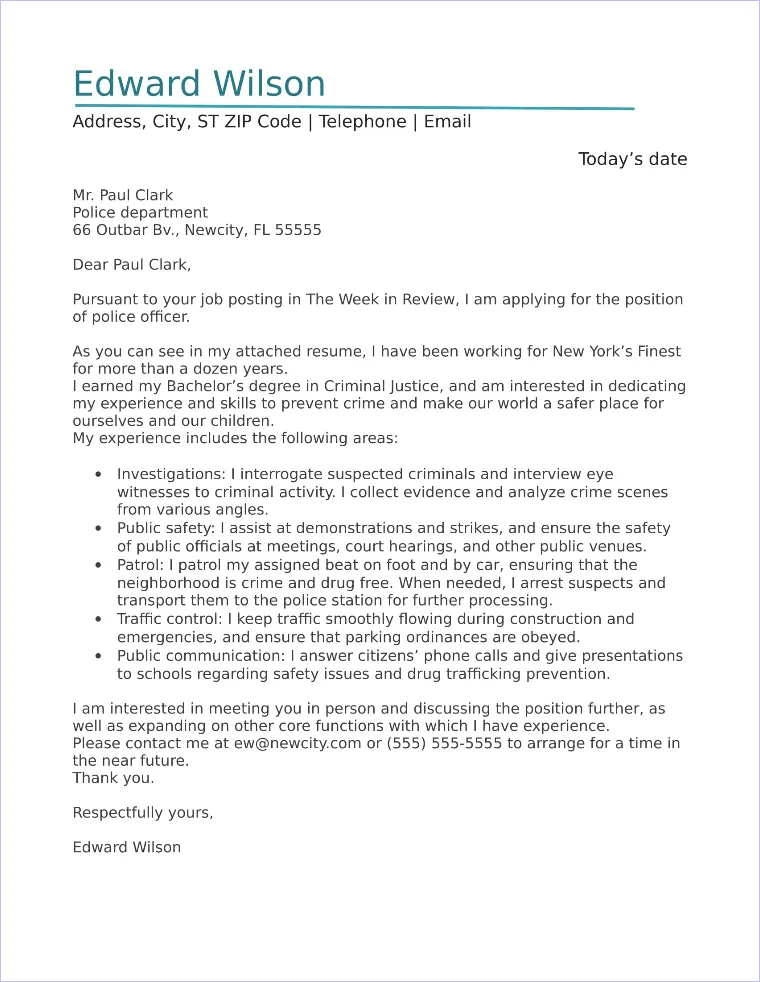
The opening paragraph is your opportunity to grab the reader’s attention and make a positive first impression. State the position you are applying for and how you learned about it. Briefly highlight your key qualifications or experiences that make you a good fit for the role. Make sure your opening is concise and compelling, as this sets the tone for the rest of the letter. This section is critical and must be attention-grabbing.
Body Paragraphs Highlighting Qualifications
Use the body paragraphs to showcase your qualifications, skills, and experiences in detail. Use specific examples to demonstrate how you have used your skills in previous roles. Quantify your achievements whenever possible, such as the number of arrests made or the successful resolution of critical incidents. Connect your qualifications to the requirements of the police officer position, showing how you can contribute to the department’s goals.
Detailing Relevant Experience
Provide a clear overview of your professional background, emphasizing experiences that are relevant to law enforcement. If you’ve held roles with transferable skills, describe your duties and responsibilities and highlight how those experiences have prepared you for this position. Mention specific achievements, such as promotions, commendations, or successful projects. Be sure to highlight your skills and talents, but don’t be afraid to show your passion for the job.
Showcasing Skills and Abilities
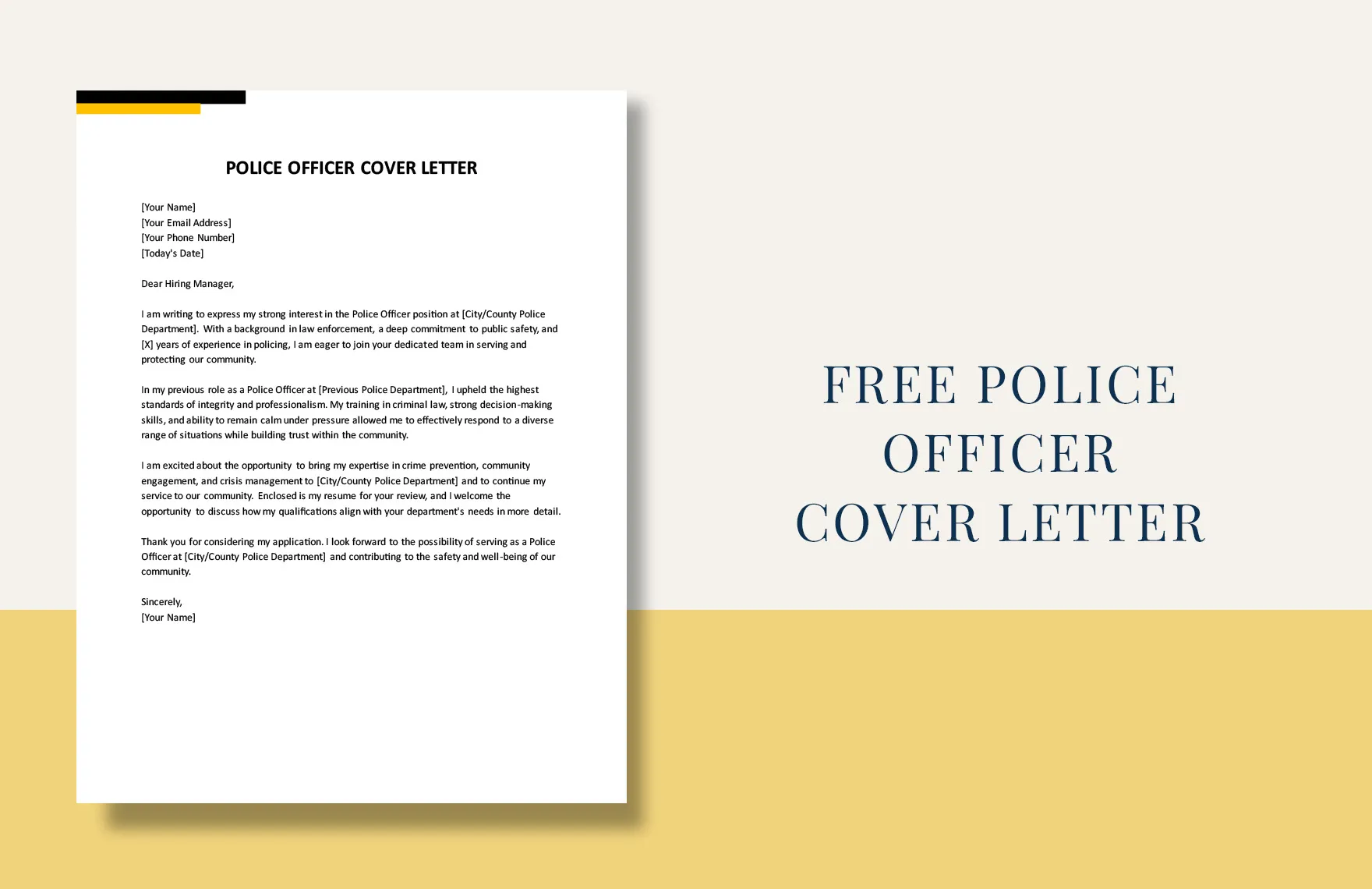
Use the body paragraphs to highlight your essential skills, such as communication, problem-solving, and teamwork. Provide specific examples of how you have utilized these skills in the past to demonstrate your abilities. Detail any specialized skills or training, such as firearms proficiency or crisis management. Explain how your skills make you an ideal candidate for the police officer role. Focus on the skills and abilities the department seeks in the role.
Closing the Letter
In your closing paragraph, express your enthusiasm for the police officer position and reiterate your interest in the department. Thank the hiring manager for their time and consideration. State your availability for an interview and provide your contact information again. Ensure a professional and courteous tone, leaving a positive lasting impression. Finish strong and let them know that you are looking forward to hearing back from them.
Expressing Enthusiasm and Next Steps
Conclude by expressing your genuine enthusiasm for the opportunity and your eagerness to discuss your qualifications further. Reiterate your contact information and your availability for an interview. Express your interest in contributing to the department’s mission. State your availability for an interview and a willingness to provide any additional information. Make sure to thank the hiring manager for their time and consideration.
Proofreading and Editing
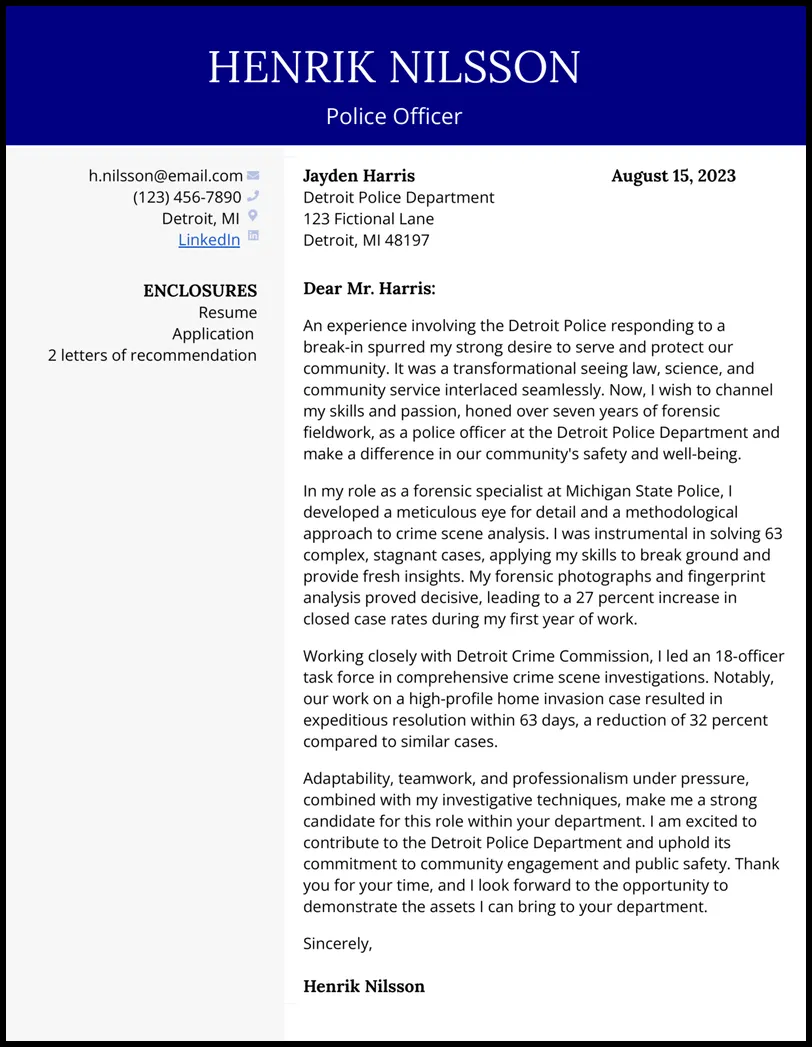
Before submitting your cover letter, carefully proofread it for any grammatical errors, typos, or inconsistencies. Ensure that the letter is well-formatted, easy to read, and free of any errors. Ask a friend or family member to review the letter and provide feedback. A polished and error-free cover letter demonstrates your attention to detail and professionalism. Proofreading is a crucial final step that can make or break your application.
Common Mistakes to Avoid
Avoid common mistakes like using generic language, failing to tailor your letter to the specific department, and including irrelevant information. Also, avoid grammatical errors, typos, and inconsistencies in your formatting. Ensure that your letter is concise, and make sure it is focused on the requirements of the position. Make sure that you don’t use any negative language or speak negatively about a previous employer. Always make a positive and professional impression.
Using Action Verbs Effectively
Using strong action verbs can make your cover letter more compelling. Begin your sentences with verbs that showcase your accomplishments and skills. For example, instead of writing, “I was responsible for…” write “Managed,” “Led,” or “Implemented.” Use action verbs to describe your skills, experiences, and accomplishments to make your cover letter more dynamic and engaging. This will help create a more positive and professional impression, and you will stand out.
Tailoring Your Letter
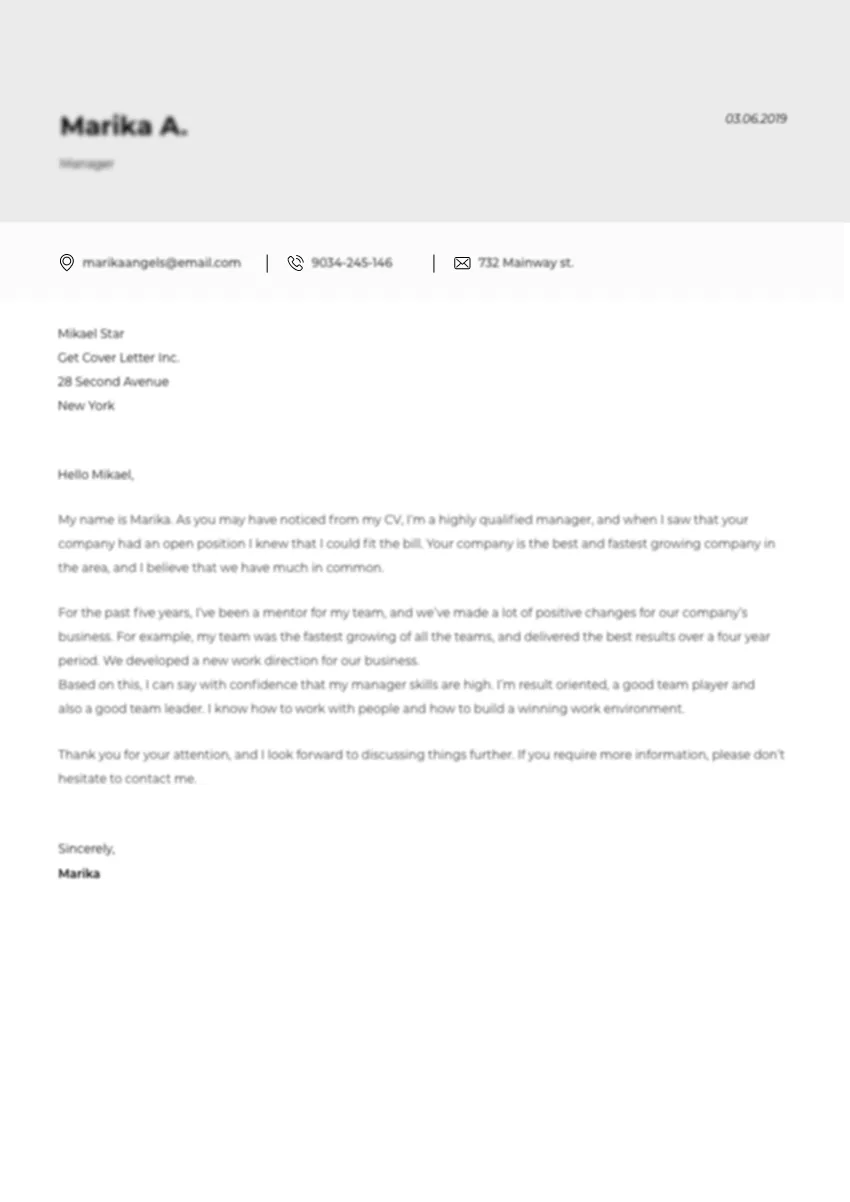
Tailor your cover letter to the specific police department and the requirements of the position. Research the department’s mission, values, and any specific requirements or qualifications. Highlight the skills and experiences that are most relevant to the position, and customize your cover letter for each application. A tailored cover letter shows that you have taken the time to understand the department’s needs and are genuinely interested in the role.
Adapting to Different Departments
Different police departments may have unique requirements or areas of focus. Research the specific department to understand its values and priorities. Highlight relevant experiences and skills that align with the department’s needs. Ensure that your cover letter reflects your understanding of the department and your commitment to contributing to its goals. Always customize your application for each position, even if you are looking in the same field.
Cover Letter Examples
Reviewing cover letter examples can provide valuable insights into the structure, content, and tone of a successful cover letter. Each example will vary slightly, based on the candidate’s experience level and the specific requirements of the position. Use these examples as a guide to help you craft your own cover letter. Pay attention to how they highlight the candidate’s skills and experiences. Pay attention to the tone and structure, and tailor these examples to your unique background.
Example 1 Entry-Level Police Officer
For entry-level positions, focus on showcasing your relevant education, any volunteer work, or any transferable skills from previous jobs. Highlight your enthusiasm, strong work ethic, and commitment to the community. Emphasize any training or certifications relevant to law enforcement, such as first aid, CPR, or any courses in criminal justice. Convey a strong desire to learn and grow in the role, demonstrating your commitment to the police officer profession.
Example 2 Experienced Officer
Experienced officers should emphasize their specific accomplishments and their tenure in the law enforcement field. Focus on your previous experience and responsibilities, highlighting any specializations, such as investigations or community policing. Provide specific examples of successful cases, commendations, or promotions. Describe any training or certifications you have obtained and highlight your leadership skills. Tailor your application to meet the specific needs of the department.
Example 3 Officer with Specializations
If you have specific specializations, such as K-9 handling or forensic investigation, make sure you highlight them in your cover letter. Describe your training and experience in the specialized area and explain how you can contribute to the department. Showcase any additional skills, certifications, or any specialized training. Demonstrate your expertise and your passion for the specific specialization, showing how your expertise can benefit the department.
Final Thoughts and Tips
Writing a successful police officer cover letter requires careful planning, attention to detail, and a genuine interest in the profession. Take the time to research the specific department, tailor your letter, and highlight the skills and experiences that align with the requirements of the role. Proofread your letter carefully, and always have someone review it. By following these guidelines and using the provided examples, you can create a compelling cover letter that will impress the hiring manager and increase your chances of landing an interview. Good luck in your application.
